#kato kotono
Explore tagged Tumblr posts
Text
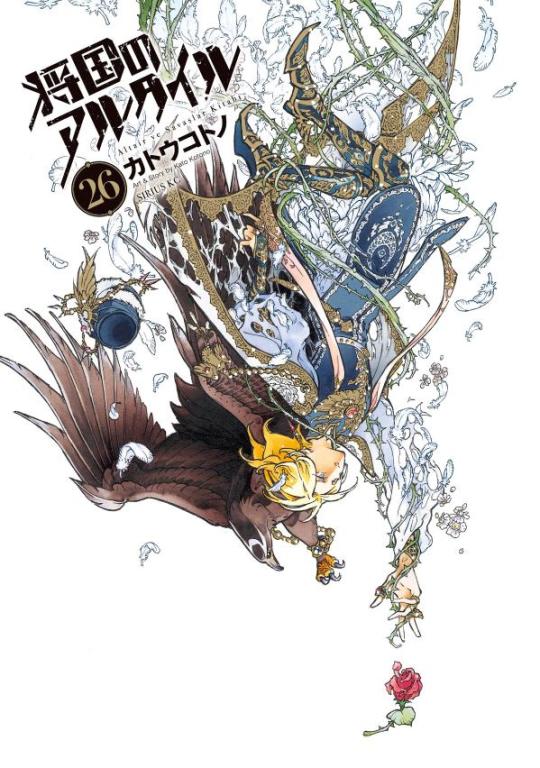
Shoukoku no Altair Volume 26 Cover
35 notes
·
View notes
Text
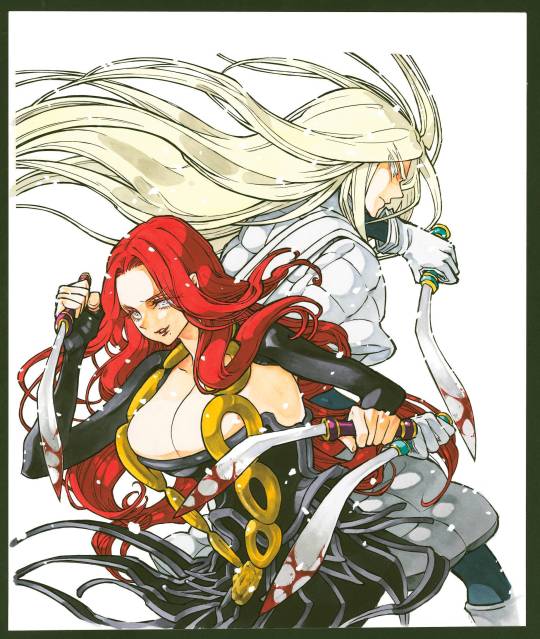
Even though the Empire had been soundly defeated at the battle of Plocnik, the fall of Gol's indirectly threatened the Empire's base in their capital. They changed their battle strategy to guerrilla warfare. The Balt Rhein forces no longer counterattacked. Instead, they took cover behind their fortified fortresses by taking advantage of the natural defences in the north of Balt. At the same time, they conducted reconnaissance and launched proradic attacks targeting enemy commanders directly. and this strategy was quite successful in inflicting temporary losses on the Turkish forces. In this case, Lelederik and Gralat, an heir to the Imperium throne as well as a commander who played a major role in the fall of Phoenicia, were the brains behind this strategy.
on the 20th, Seker, 79 CTR. after spending several months of winter in Gol. and entering early spring, where the ice began to melt and the weather began to warm up. Mahmut Pasha, again began military operations targeting the north of Balt. This was to protect his rear position, so that he would not be stabbed in the back by either Balt Rhein or Hermann's forces. Mahmut Pasha reached Turbezzel and had little difficulty in conquering the town, as it was guarded by only a few thousand Balt Rhein troops and supported by the superiority of the siege cannons. Turbezzel surrendered, and opened its doors to the Turkiye forces. Mahmut Pasha made Turbezzel a temporary base for his military operations.
3 days after the conquest of Turbezzel. Candarli Ibrahim Pasha moved northward and reached Vidin, the town at the end of the Danube River that formed the border between Balt Rhein and Wallachia, after a siege and continuous cannon and trebuchet shelling that destroyed its mediaeval fortifications. The count of the town raised the white flag and asked Ibrahim Pasha for security guarantees so that his troops would be ready to leave the town and surrender it voluntarily to the Turkiye. Vidin's troops then headed for Scheenestrum, where Lelederik and his men were based.
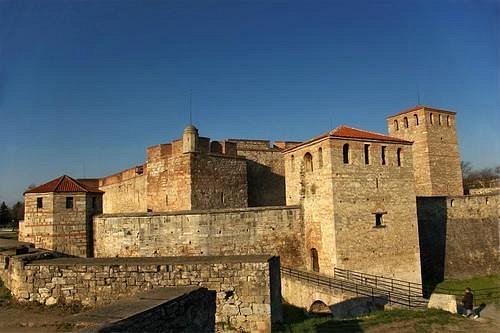
Baba Vida, a fortress in the Balt Rhein-controlled town of Vidin, which bordered the Danube River and Wallachia.
Lelederik began to devise his next plan to trap the Turkiye troops. and he was convinced that the enemy troops would be heading for Schenestrum. For this, he decided to mobilise the famously tough Elvades Mountain troops, along with several thousand regular troops of the Empire, to hide in the bush or in the highlands. With a plan, he would have the troops move to surround Schenestrum. Then, when he was caught off guard, he would attack them, break through the troop formation, and behead their commander-in-chief.
On the 25th, Mahmut Pasha travelled cautiously from Vidin to Scheenestrum due to the steep terrain. Upon arrival in front of the fortress, Mahmut had not yet installed his siege cannons and instead set up a tent while negotiating with the count of Scheneestrum, Wiilhelm Weissner. Mahmut was unaware that the fortress guards in the city were fewer than usual, and he did not realize that he and his troops had been set up by Lelederik. At night, Lelederik launched a blind attack without lighting torches, and the Turkiye troops attempted to repel it. However, the darkness of the night and fighting in low-light conditions caused the effort to fail. Elvadesberg's troops even managed to break through to Mahmut Pasha's main tent. Upon seeing this, Mahmut quickly emerged from his tent and set it ablaze to gain a clearer view of the enemy's position while withdrawing his troops. The Turkiye troops were defeated and decided to retreat to Vidin. In this battle, Hasan Ulubat and his younger brother Hussein died as martyrs, along with several thousand Janissary and Sipahi troops under their command, in order to protect the main troops.

Schneesturm City
The morale of the Empire's troops was boosted by the defeat of the Turkiye Army at the hands of Lelederik, which demonstrated that the Turkiye Army could still be defeated. However, despite the victory, the Empire's troops were unable to launch a counterattack. Lelederik was also dissatisfied with the victory he had obtained at Scheneesturm and decided to launch a counterattack against the enemy troops. Despite the defeat at Schneestrum, Mahmut Pasha remained undeterred. In fact, he was even more determined to succeed and would not allow Lelederik a second chance. As a result, he mobilised a small army with the task of ambushing Lelederik and his men. If Lelederik was defeated and killed, it would demoralise the Imperium troops, making it easier for Mahmut Pasha to conquer Schneestrum.
On the other hand, Lelederik's skill made it difficult for Ishaq Pasha to face him. He was successfully cut by two slashes of Lelederik's knives. Lelederik insulted him, thinking that he had won and decided to lead his troops. However, unexpectedly Ishaq Pasha pounced on him from behind and stabbed him repeatedly. The deaths of Lelederik and Gralat really destroyed the morale of the Imperium troops.
The Imperial forces retreated to Schneestrum. Mahmud Pasha besieged the fortress on the 3rd of the month of Seker for three days, which ended in a Turkish victory. Wilhelm Weissner negotiated with Mahmud to surrender the city in exchange for the withdrawal of all his troops. The fall of Schneestrum was considered the greatest humiliation for the Balt Rhein. Refusing to retreat, Weissner was sentenced to death by Prime Minister Louis two days later.
Mahmud Pasha crossed the Elvadesberg mountains and began the Invasion of the Balt Territories.

Elvasdesberg Mountain
The deaths of Lelederik and Gralat paved the way for Mahmud Pasha to conquer further Balt territories. However, he had to face various natural obstacles, the Elvadedesberg Mountains. These mountains were still covered in snow even though spring had entered. In addition, the path that could be passed was very winding, prone to avalanches, and made supply lines difficult. This would be a challenge for the 40 thousand Turkish troops, 60 cannons, and 90 transport trains.
Mahmud Pasha decided to cross the road to Eascherung at an altitude of 3000 feet. Because this distance was the closest distance, entering the 9th, the first line troops led by Radu Bey and Bayazid Pasha began the climb. To prevent avalanches, they marched at midnight. With very strict silence. They covered a distance of 2 miles. and only took about an hour and a half to travel. However, due to the difficulty in transporting the cannons and the lack of wood that could be used as rolling wheels, Bayazid's troops were forced to start the battle without siege artillery. Fortunately, the Imperial forces had already been decimated, and at the insistence of the locals, they were forced to surrender. Eascherung submitted without a fight.
Despite the difficult terrain, Mahmud's main force was able to reach Eascherung in 2 days. But with great sacrifice, he was forced to leave more than 40 cannons in the rear line to reduce the burden of the climb. and many transport trains were left behind. for that, Era (Orban's daughter who joined the expedition) proposed to choose another route by using a lower climb and lifting the cannons and goods using a pulley designed by her father, thus speeding up the rate of supply mobilization.
Bayazid's troops continued to clean up the climbing path which was sometimes filled with Balt Rhain troops and then descended to Saint Simon on the banks of the Danube River. Bayazid Pasha attacked the Balt Rhain guard troops in the city by surprise. Even with makeshift siege cannons, his shots were able to destroy part of the city walls. With a short battle, the Balt Rhain troops surrendered on the 14th.
but the next challenge still awaits as the Turkish troops deepen into Elvadesberg. The Elvades Mountain Troops are still a frightening specter for the Turks. because of their guerrilla capabilities by hiding in the gaps of the mountain cliffs. this time with the leadership of Gorge Argile, along with 8000 of his troops came out of Ghilman, and were able to defeat the Turkish troops in the battle in the Maelnbron valley (22nd) near this city. however, the victory of the Elvasdesberg troops did not prevent the Mahmud Troops from capturing the Ghilman fortress (24th-25th) Gorge Argile decided to retreat to Shafina and Arima while providing logistical support to the Balt Rhein troops who were defending.

The leader of the Elvades mountain army, Gorge Argile.
The defense of Shafina and Arima was entrusted to Erden and Reiren Magendorf. The Imperial government had ordered both commanders to defend the two cities until the end. In the first three days, the Turkish army's attack on the Arima fortress which began on the 27th ended in failure. With 800 Janissaries as victims. Argile decided to go back out in the hope of seizing supplies and even Turkish artillery. However, this time Mahmud Pasha had learned from his strategic mistake in Maelnbron by forming Wagenfort, placing Musketeers, and archers to ward them off. As a result, Argile's attack proved to be a failure, and he was forced to return to the city fortress.
Mahmud Pasha could not be patient with the siege of the city. So he decided to advance with 20,000 troops with the remaining artillery to immediately besiege the Arima fortress. While the siege of the Shafina fortress was handed over to Bayazid Pasha. Within 4 days Mahmud Pasha was able to defeat Reiren and capture Arima even though he had fought with all his might. To deceive Mahmud, Reiren made a peace treaty, as a guarantee of security for his troops, so he came out and attacked Mahmud suddenly with his troops. But he himself was killed first. There was a brief battle around the city of Arima which Turkiye could easily win. Because the formation of the Balt Rhein troops was irregular. Angry at this betrayal, Mahmud chased the remaining Balt Rhein troops who tried to escape, were captured, and then executed.
The fall of Arima and the death of Reiren further depressed Eden Magendorf, coupled with the rapid unrest of the citizens and famine hit the city of Shafina. Although supported by thousands of guards and sufficient Elvades troops, the city's defenses were unable to withstand the onslaught of Turkish cannons that came crashing down. For that, they hoped to drive the enemy out of the city by holding a Guerrilla war. On the 6th, with the leadership of Gorge Argile, regular troops and Elvades launched a surprise attack in the middle of the night on the Turkish camps and managed to bring some enemy supplies. Angrily, Bayazid Pasha ordered a general attack on the fortress, hoping to immediately seize the city gates and enter. However, Eden and Argile and held the situation so that they were able to repel the Turkish troops and push them back. But other bad news came when Mahmud Pasha had come to surround the city from the south side. Another general attack was launched right at midnight entering the 8th to prevent guerrilla warfare operations by the enemy. The city walls began to collapse and fierce fighting broke out between the Turkiye Army and the Balt Rhain and Elvades troops inside the city. As the sun rose, most of the Balt Rhain troops admitted defeat, Eden and Argile with their remaining troops fled. The city of Shafina fell after being besieged for 10 or 11 days.
Eden Magendorf asked St. Michael for help to send troops to the Balts. However, no response was forthcoming. Having no choice, Eden and Gorge decided to fight the Turks alone. Their forces met at Tharza (Hali, 16th) and were soundly defeated and suffered heavy losses. (10,000 troops according to Hammer) In the battle, Eden was wounded and fell from his horse but managed to escape after changing his horse and disguising himself as a common soldier. While Gorge fell as a prisoner. According to Tucnhman's report, this battle was the end of Elvadesberg's resistance in the Balts.
According to Sukrullah Celebi's notes, Mahmud Pasha invited Gorge Argile to his camp. Mahmud Pasha convinced Argile to accept Islam and join his army, with his diplomatic skills and gentle and tolerant offers, making Argile feel flattered by his high respect and ethics. He converted to Islam, followed by all his men. Then he merged the Elvades army into the Turkiye army. He even participated in helping Mahmud in his conquest.
According to Warren Treadgold, despite these successful efforts, it is highly questionable the indifferent reaction of the Balt Rhain to the fall of their main cities to the Turks in the north, along with the joining of the elvades to their side. Eden Magendrof, desperate to seek help from the Empire. Fortunately, he still had the support of Count Cave and Count Jourdain, to launch a counterattack. Through the report of Goz Kulak, Mahmud Pasha decided to attack them first, in the next battle, at the city of Cave, the Balt Rhain troops tried to block the Turks through frontal warfare, but were defeated. They retreated to the fortress to defend. However, they did not have enough supplies. The city of Cave decided to surrender on the 19th. This surrender was strongly rejected by Eden and threatened Count Cave, St. Albans to kill him as a betrayal. The dispute escalated into a one-on-one duel which St. Albans won. After that, he faced Mahmud Pasha to surrender his city, even he decided to convert to Islam voluntarily, after Mahmud issued a decree to his troops not to loot city.
one by one the cities to the fortress in Balt were successfully controlled by Turkiye, but in the expedition to Jourdain on the 22nd, a fierce battle took place for 10 days. because of the tenacity of the fortress guard troops, and they were able to inflict losses and momentary defeats on Mahmud's troops, however, the city of Jourdain was successfully conquered by force. The Imperial troops thought that Mahmud would let them escape, but it turned out, Mahmud sent 300 Sipahi Cavalry to chase them to be captured as slaves.
Aftermath
Mahmud was content with the conquest of Jourdain, he did not even touch Novo Bordo or Smedrevo where the city was located in the lowlands and vulnerable to attack. Possibly, he wanted to rest his troops, he was also worried about the trap of the Balt Rhain troops that might have been prepared if he decided to leave Elvades, he preferred to secure the base behind him first. Besides, surprisingly, (in the memoirs he wrote) there was no significant resistance that he passed through in his operations in Balt, except for local initiatives such as Lelederik, Gralat, Argile, and Eden. Mahmud wrote a letter to Zaganos Pasha about his successful military career in Balt written in Poetic Couplets.
The Turkiye invasion of Balt and Elvades had a negative impact on the Empire. Several prominent advisors and commanders of the empire were disappointed with the neglect of Louis' ministers and King GoldeBalt himself. This neglect was inseparable from the emergence of external reactions in the form of new opposition parties opposing Louis' ministerial policies after the heavy defeat at Plocnik. According to Irene's notes, some ministers, troop commanders, and Hermanns actually rejected all of his policies. The Hermanns actually removed their proud badges and wandered as ordinary citizens in Balt, some settled in Rhein. (The definite answer to why there were no more Hermanns deployed by Balt Rhine after the defeat at Plocnik). Louis' ministers continued to enforce the policies of his pro-war faction by issuing new conscription decrees, even without hesitation sending troops to drag citizens into military service. However, this only added to the internal political chaos of the empire. In addition, dissatisfaction with the Empire in the South increased. which paved the way for the Turkiye Invasion of Rhein afterwards.

The direction of movement of Mahmud Pasha's troops, and his conquest of the Balt region and the Elvades mountains. (red arrow)
#shoukoku no altair#altair a record of battles#kotono kato#ottoman#fanfic#lelederik#tughril mahmut#kato kotono#conquest
3 notes
·
View notes
Text
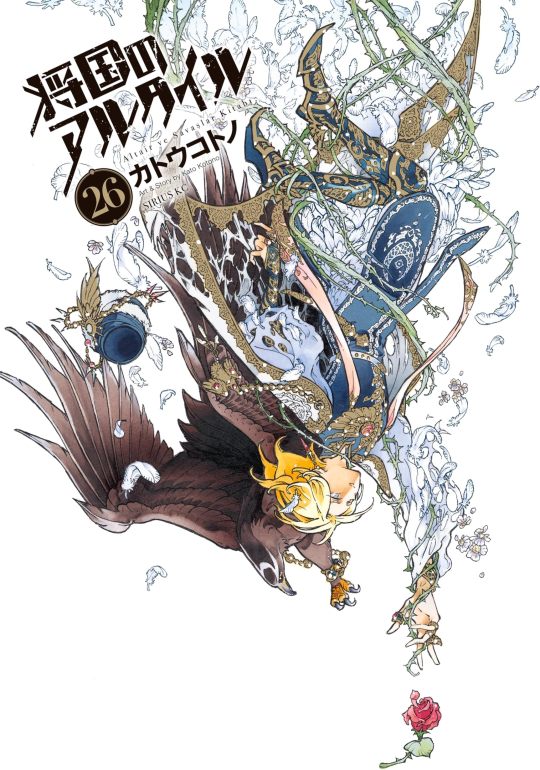
Shokoku no Altair Vol.26 (end)
16 notes
·
View notes
Text
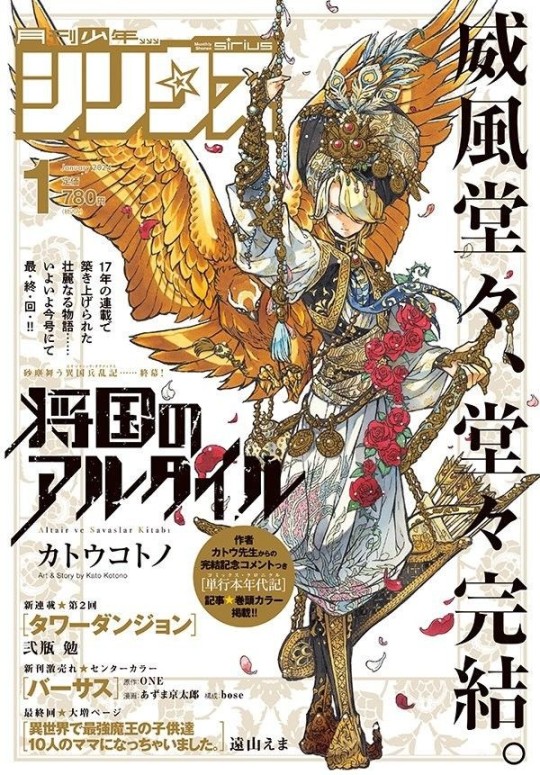
by kato kotono
6 notes
·
View notes
Photo
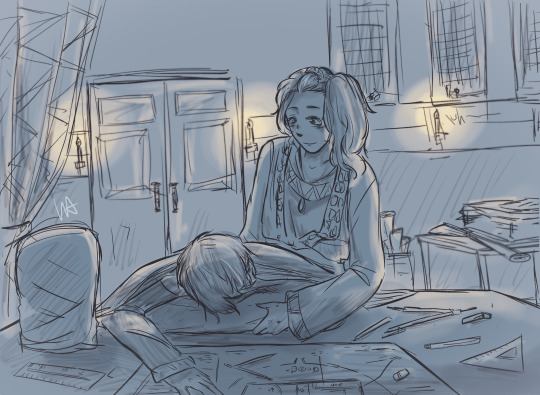

zeki and nurzan bffies
#why does no one talk about zekinurcan#pls can someone talk to me about shoukoku no altair im desperate#shoukoku no altair#stratocracy of altair#altair: a record of battles#altair a record of battles#shoukoku no altair manga#sanslar nurzan#mimar zeki#kato kotono#zekinurzan#doodle#my art#fanart
18 notes
·
View notes
Photo
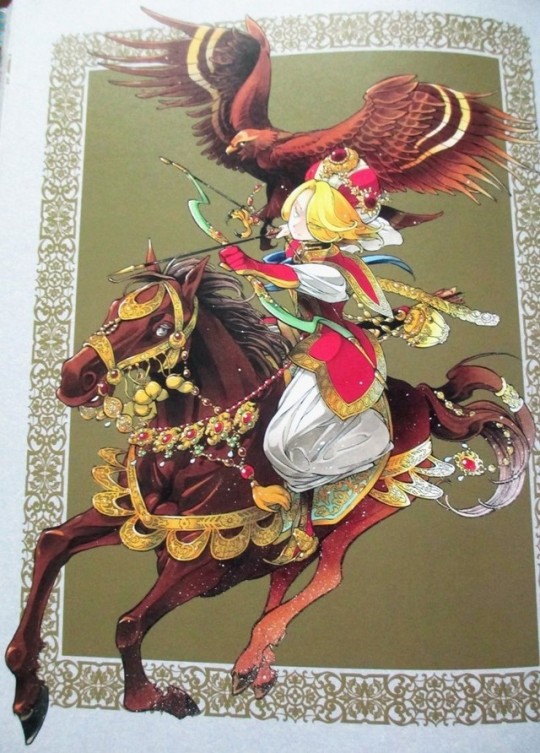
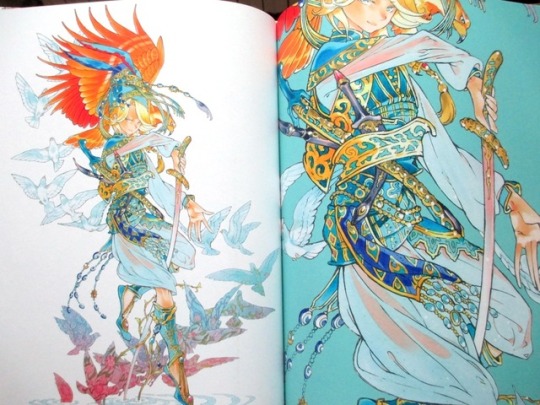
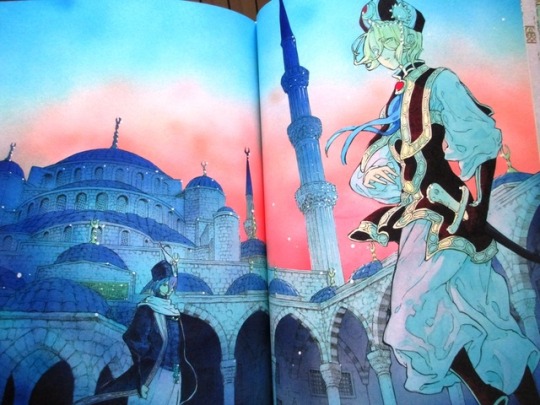
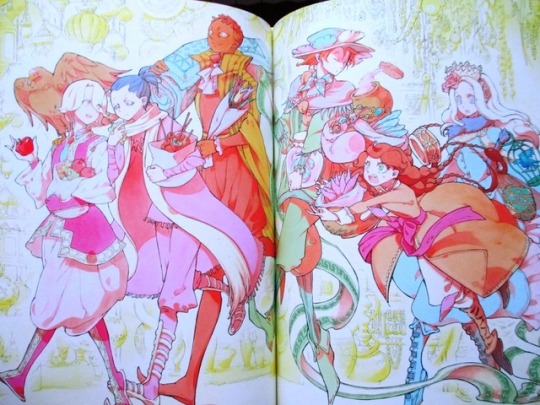

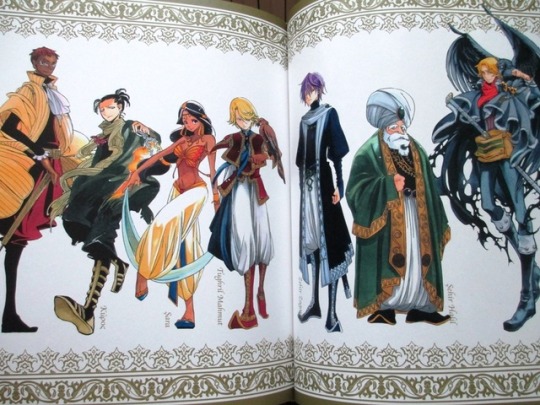
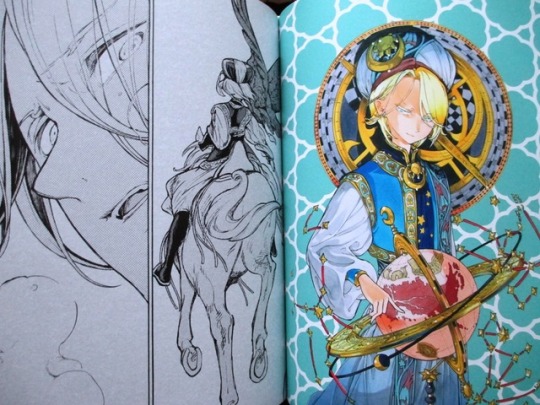
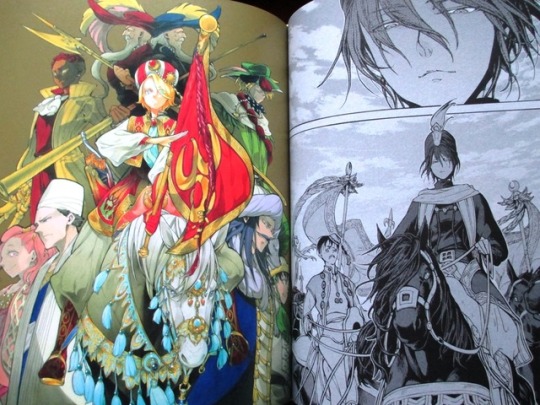
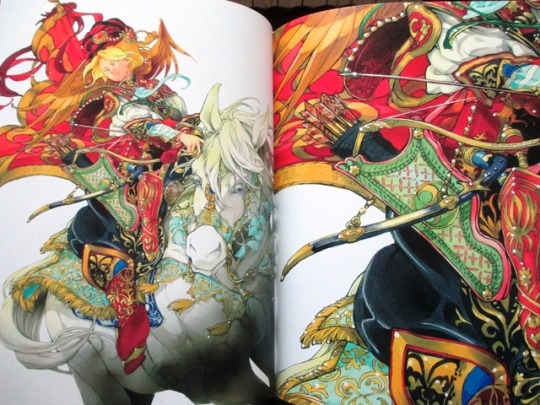
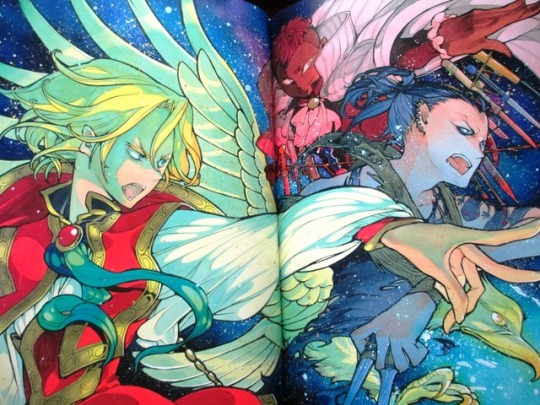
Shoukoku no Altair Artbook - Katou Kotono (part 2)
#artbook#katou kotono#kato kotono#kotono katuo#kotono kato#shoukoku no altair#altair a record of battles#mahmut#mahmut pasha#tughril mahmut
31 notes
·
View notes
Photo

"Flying Tiger" made of yarn with pine needles of silk thread by Mrs. Kotono Kato, probably made during her internment at Granada Relocation Center, Amache, Colorado, 9/14/1945.
Series: Central Photographic File of the War Relocation Authority, 1942 - 1945
Record Group 210: Records of the War Relocation Authority, 1941 - 1989
Image description: Black-and-white photo of an embroidered art piece. The piece depicts a tiger descending a tree with sparse pine needle clumps. The tiger has one paw on the ground and is turning to the side. The tiger has an open mouth and wide eyes. The tiger looks kind of fuzzy, and the tree and the ground are made of a smoother, sharper thread.
#archivesgov#September 14#1945#1940s#World War II#WWII#Japanese Internment#War Relocation Authority#art#embroidery#tigers#Kotono Kato#Asian American history#Japanese American history
62 notes
·
View notes
Photo

Shokoku no Altair Vol.21 Cover
Kotono Kato
18 notes
·
View notes
Text
manga recommendations pt. 1
Music, magic, and musings.
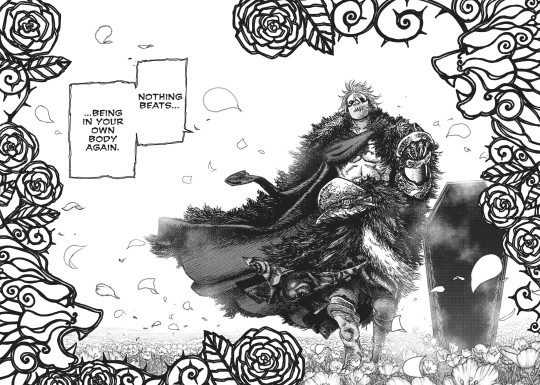
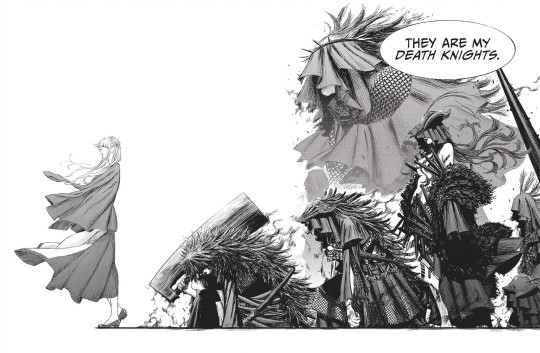
Majo to Yajuu (The Witch and the Beast) by Kousuke Satake
A dark fairytale-esque story set in a European steampunk world populated with witches, necromancers, mages, and monsters. It follows Guideau and Ashaf as they solve magical crimes, all the while hunting down the witch responsible for placing a curse on Guideau. A stunningly visceral story about vengeance, powerful women, and magical organizations, all told through Satake’s expressive and gorgeously detailed artwork.
(Includes depictions of gore and violence, torture, body horror).
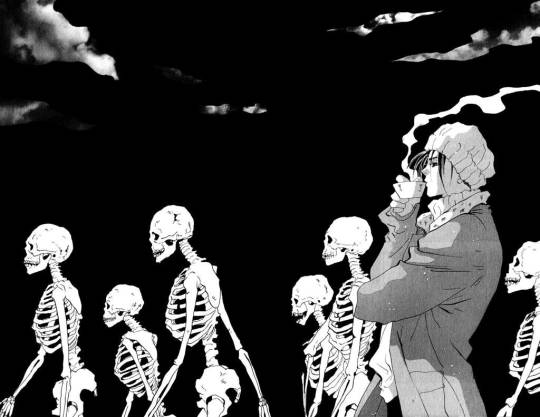
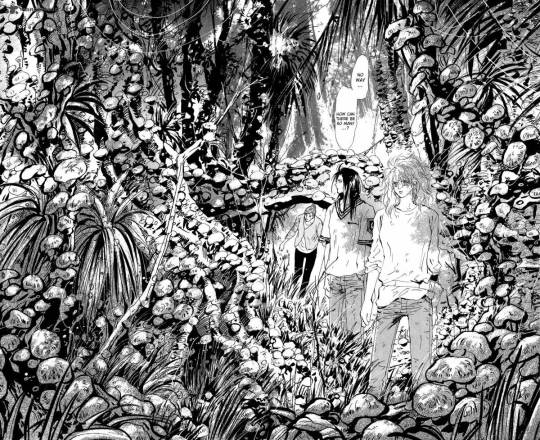
7 Seeds by Yumi Tamura
Set in a post-apocalyptic future after a meteorite hits Earth, the story follows the struggles of five groups of young adults after they are awoken from cryonic preservation. Tamura’s classic shoujo art style contrasts beautifully with the twisted and mutated environment, and the story brilliantly explores the characters’ intense emotional experiences with grief, trauma, and loneliness, as they try to adapt to this new and hostile world.
(Includes depictions of child abuse, trauma, suicide, attempted sexual assault, death).
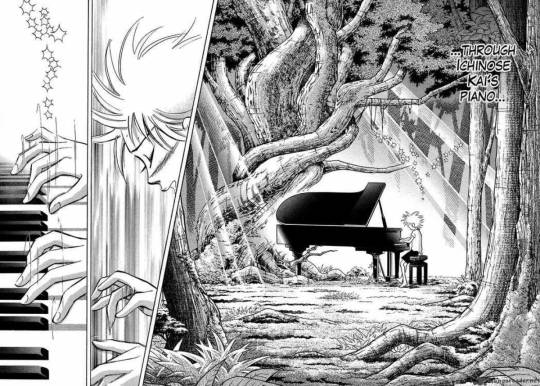
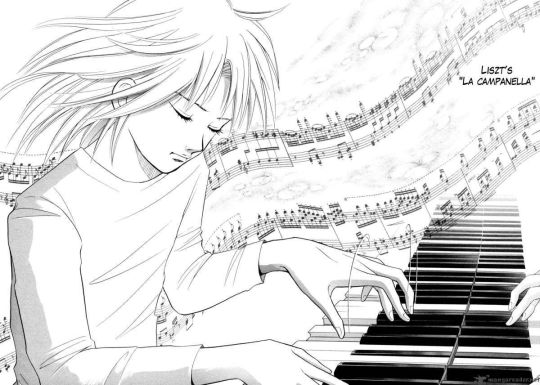
Piano no Mori (The Piano Forest) by Makoto Isshiki
A heartwarming, coming of age story following Kai Ichinose, a child from the red light district who grows up playing an old piano left abandoned in the forest, and Shuhei Amamiya, who hails from a lineage of distinguished pianists. The story explores the importance of finding your own sound, and Ichinose’s music is depicted beautifully, captured visually in the serene moonlight streaming through the forest to the sunlit field of golden rapeseed flowers.
(Includes depictions of poverty, sex work, bullying, child abuse).
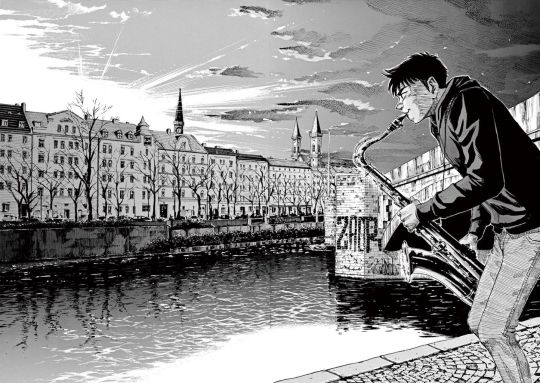
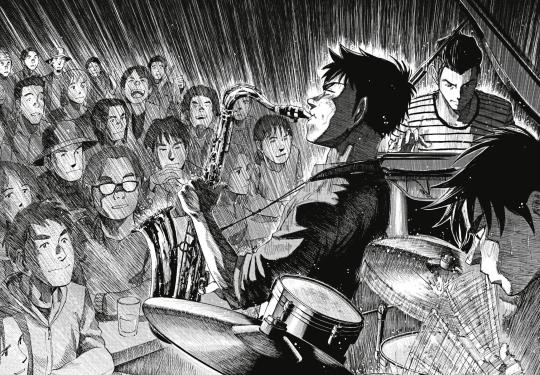
Blue Giant by Shinichi Ishizuka
Between the basketball club, his friends, part time job, and graduation quickly approaching, Dai Miyamoto dreams of becoming the best jazz player in the world. He plays the saxophone everyday, in the sweltering heat by the river and in the tunnel during rainy nights. Miyamoto’s intense passion for jazz music is conveyed wonderfully in the strong action lines, and a great focus on the character’s expression and body language.
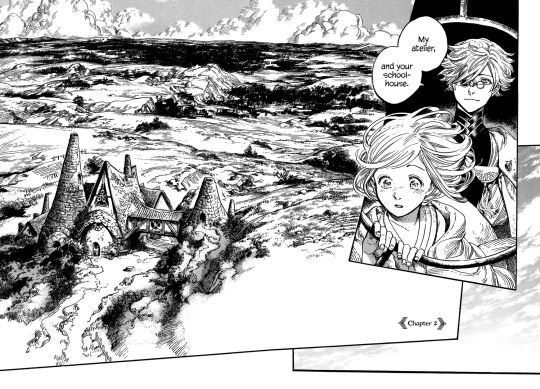

Tongari Boushi no Atelier (Witch Hat Atelier) by Kamome Shirahama
A beautifully illustrated fantasy series about Coco, a young girl who longs to be a witch, discovering that magic can be performed by drawing glyphs and unwittingly uses a forbidden spell that turns her mother into stone. She is taken in as an apprentice by the enigmatic wizard Qifrey, and we follow her journey as she discovers both the wonders and terrors of magic. The world is vividly imagined and intricately detailed, brought to life through Shirahama’s lushly-drawn art style and fantastical story telling.
(Includes depictions of disability discrimination, forced body modification).
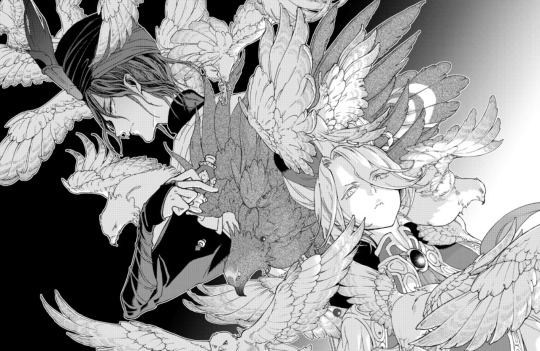
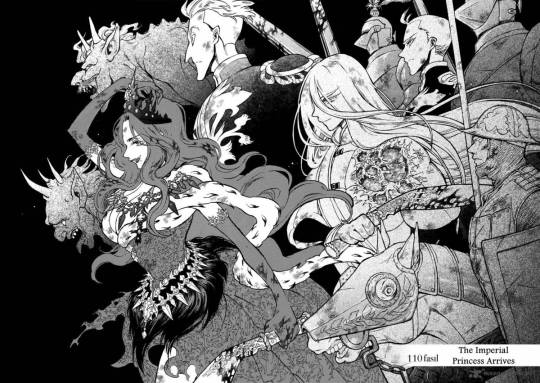
Shoukoku no Altair (Altair: A Record of Battles) by Kato Kotono
A historical fantasy story (loosely based on the Ottoman Empire) following Tuğril Mahmut, Türkiye's youngest elected Pasha and a strong advocate of peace, as he seeks to protect his homeland from the looming invasion of the Balt-Rhein Empire. The story is rich and immersive in its world building and characters, weaving in complex political, economic, and military aspects.
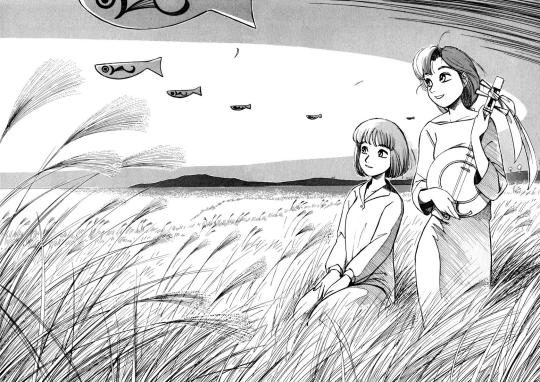
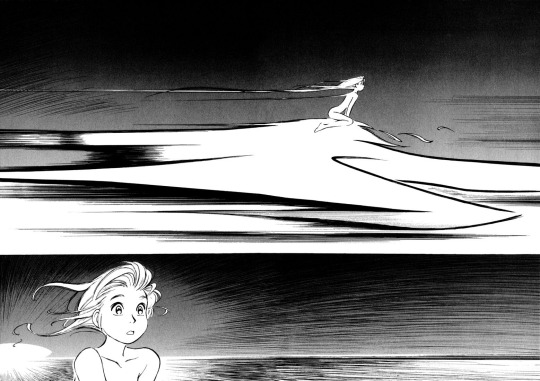
Yokohama Kaidashi Kikou (Record of a Yokohama Shopping Trip) by Hitoshi Ashinano
A slow, quiet story, set in a post-cataclysmic world after an environmental disaster has left humanity in decline. The story follows Alpha Hatsuseno, a robot who runs Café Alpha in her owner’s absence. Ashinano evokes the Japanese Mono no Aware style of storytelling, a feeling of gentle sadness when you gain awareness of the transient nature of things. The series is contemplative, nostalgic, and bittersweet, capturing the slow passage of time, of the small wonders that come, linger and pass on.
#manga#manga recs#majo to yajuu#7 seeds#piano no mori#blue giant#tongari boushi no atelier#shoukoku no altair#yokohama kaidashi kikou
151 notes
·
View notes
Text
@mejomonster anime/manga rec list because ask and ye shall receive.
historical fantasy: altair: a record of battles by kotono kato. longer review here. very good war story with high tension political, economic, and tactical maneuvering. rare setting/focal point of the turkish/ottoman empire rendered with beautiful art and attention to detail.
fantasy: the heroic legend of arslan by yoshiki tanaka. recommend the novel over the new 2013 anime/manga, but that’s purely personal preference. I don’t prefer hiromu arakawa’s art style for anything but her own works. i prefer novel!arslan’s mix of maturity/nobility and naivety over the more childish arslan from the new anime/manga. the old ovas preserve the vibes of the novel much better imo, especially the unnerving fog in the opening scene. but very good story overall. a classic ‘dispossessed royalty and his band of fighters must escape and return to take back their country’. also set in ancient persia with the europeans as the aggressor a la conquistadores/crusaders.
honorable mention: yona of the dawn by mizuho kusanagi. shojo version of arslan? haha i’m only half kidding, but yona of the dawn stands on its own two feet. again the classic ‘dispossessed royalty and her band of fighters’ etc. except this one’s more obviously fantasy with the band of fighters having superpowers. anyways i love the writing, especially yona’s character arc from spoiled oblivious princess to determined to retake her country and do better for its people. set in ancient korea.
shounen: hunter x hunter by yoshihiro togashi. classic shounen that starts with four plucky adventurers and gradually ramps up violence and consequences of the protagonists’ actions. this series has an arc for everyone, and while you probably won’t like every one equally as much, it has a lot to offer and a super fun magic system with smart and creative battles. the world is zany, dangerous, batshit crazy, and charming.
honorable mention: jujutsu kaisen by gege akutami. for a new shounen (seinen?) that’s honestly lived up to the hype. it needs more seasons though, because the story’s just getting started. i really love the main trio and find they play off each other super well. also, though they’re not always the focus, there’s a great variety of female characters.
adventure: magi: the labyrinth of magic by shinobu otaka. inspired by the stories of one thousand and one nights (arabian nights). if i had to pick one anime or manga that embodies ‘magic’ and ‘adventure’, i’d pick magi. i found the setting very unique (middle eastern, plus countries analogous to ancient china, rome and others). it also goes deeper into topics like poverty, slavery, war, and discrimination. very underrated series tbh.
psychological: monster by naoki urasawa. undisputed master of the category. has a dynamic similar to the one i like in qianqiu; a battle of wits and wills between a doctor and the man whose life he saved, not knowing he will grow up to be a serial killer. dark, twisted, but so very human. that’s how i would describe monster.
slice-of-life: natsume’s book of friends by yuki midorikawa. ugly sobbing. the anime is so good, the music really adds to the emotional impact. this story is, at its heart, about the frailty, importance, and warmth of human connection despite featuring yokai and supernatural elements. it’s about healing, being kind to yourself. i absolutely love natsume. he’s like that adorable dog you find at the shelter who has so much love to give but is also withdrawn from being treated badly in the past. and believe it or not, his character slowly grows across the seasons, even though there’s not a strong overarching plot.
sports: run with the wind by shion miura. i loved this anime more than i had any right to. if you’re the type who can’t relate to most sports anime set in high school, then this one’s for you. it’s about college kids, a very underused demographic, who decide to run in the hakone ekiden, japan’s most famous relay marathon aired nation-wide every new years. it’s an inspiring anime, not just about running. it speaks to anyone who has lost the spark and love for something, and rediscovering the spark and what made you love that something in the first place. it also speaks to just...doing something for yourself. accomplishing something that took effort and being able to pride yourself on that. has a novel, jpn only, i haven’t read it yet but there’s fan translations available.
honorable mentions: giant killing by masaya tsunamoto and ao ashi by yuugo kobayashi. i love soccer (football), so i had to throw these in as other examples of sports anime that aren’t about a high school team. both tackle the professional sides of the sport. giant killing is the actual adult pro leagues, ao ashi is the youth team of a professional team. i’d say, if you’re a soccer fan, giant killing’s vibes will speak to your soul. ao ashi is just a realistic take on what it actually takes to get to the top. i actually prefer the manga of ao ashi, but if you can’t visualize the plays very well (like i did at first), the anime is probably better.
comedy: barakamon by satsuki yoshino. ok, there are probably other good ones out there, but i don’t watch comedy often. barakamon was surprisingly good though. it’s about a young professional calligrapher who’s booted off to a small island town after offending an official at a competition. he’s there to improve his calligraphy and do some soul searching (unwillingly). i liked it because for one, it actually does kid characters right. they’re gross, disruptive, adventurous, sometimes cute, selfish, and sometimes amazingly selfless.
sci-fi: gundam 00. alright, it does get a bit preachy and weird at the end, but i liked 00 a lot because it starts off so strong. the first scene of the first episode will haunt me forever. it’s really about how we of the modern world all live interconnected lives, whether we like it or not, and turning a blind eye just because it doesn’t directly affect you doesn’t mean it won’t someday impact your life.
???: baccano! by ryogo narita. novel or anime, but the anime is excellent, the music sets the vibes of early 20th century america, and the dub is superb. i just can’t watch this one without the dub, which is a rarity. it’s zany, you’ll be so confused in the beginning, but i promise it makes sense and all storylines are connected. but it’s chaos. good chaos. the storytelling’s really unique.
movies: i could have picked a few, but one of my favorite anime movie series is garden of sinners by kinoko nasu. it’s dark, twisted, and paranormal mystery. my favorite movie of the series is probably paradox spiral.
7 notes
·
View notes
Text
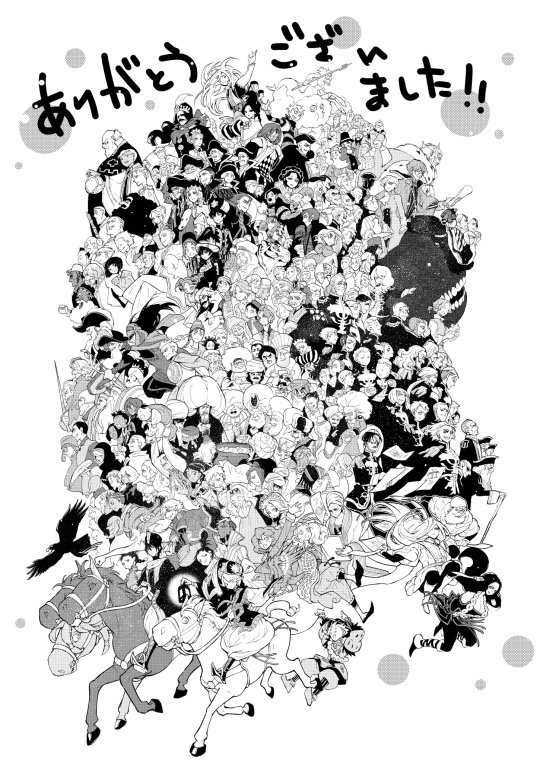
Thank you so much !!
24 notes
·
View notes
Text
Turkiye invasion of Rhain (79 CTR)

Border between Stratocracy Turkiye and Rhain in 79 CTR before Invasion.
The invasion of Rhain in mid-79 CTR was part of the military operations in the Balt Rhain Turkish War. launched by the Stratocracy (Dominated by the Zaganos Pasha Faction) against the Balt Rhain Empire. The expedition was limited to the southern border, where the Sud, Cuore, and Balt Rhain regions shared a long land border. After the success of the military operations in Balt, Zaganos Pasha ordered the Beylerbeys and Sanjaks of Sud to launch an attack on the Rhain border. Although it had no definite military objectives, Zaganos's goal was allegedly to secure the Sud region, capture the border cities, and wipe out all the Balt Rhain guard troops. ensuring that they could not attack Sud again as they had in the Battle of Cinza.
The military expedition was led by Karaca Pasha (as Beylerbey Sud.) Karaca gathered his troops in Toro. According to classical historians (who lived in that era) the number of his troops was 60,000 at most, or 40,000 at least. Supported by 4000 Musketeers, and 69 Cannons. (According to Thomas Halbron, Turkiye began to deploy Mortars in this Invasion for the first time). Although this is still debated. The Turkiye troops departed from Toro on the 6th of Cinili. North towards Hisar, stormed the Balt Rhain position in Bernett and defeated them in a Frontal battle near Camino. (9th and 10th). The Turkiye troops broke through the border and were able to take control of cities and fortresses. This cannot be separated from the existence of a popular uprising who were dissatisfied with the Imperial regime, and preferred to be controlled by Turkiye, which was known to be tolerant.
The invasion of the Rhain was limited and not a major military operation. The Turkiye did not control the entire Rhain region until the battle of Arch. with a devastating defeat for empire, the Turkiye were able to complete the conquest which ended with the treaty of Edirne in 80 CTR.
Campaign
After receiving Zaganos Pasha's order to invade the Rhain border. Karaca Pasha began to gather troops from the sanjaks of Toro, Espada, Seallant, Humo, and Scoglio. The number of troops gathered varied (according to historian Irene) the number reached 60,000 troops. Some reported up to 100,000. However, this is clearly an exaggerated number. Because the number of Beylerbey troops in Sud did not reach 80,000. It is likely that there were many volunteers who volunteered. However, Karaca refused, and only wanted to use Turkish troops (especially from Janissary and Sipahi elements) who were trained in this operation.
The army began to depart from Toro on the 6th of Cinili. According to Rod Orm's spy, it was likely that the enemy would invade directly from the border. However, they miscalculated. Because it turned out that the Turkish troops were moving towards Bulgaria and actually departed from Hisar. According to Tursun Bey (a classical Turkish historian who accompanied Karaca in this operation). Beylerbey wore a hat that had the first verse of Surah Al Fath (اِنَّا فَتَحْنَا لَكَ فَتْحًا مُّبِيْنًاۙ) written on it. The Turkish troops crossed the border of the empire and arrived at the city of Bernett. Karaca took the city very easily. Considering that the people of Bernett voluntarily opened city gates and even killed Balt Rhain troops who were guarding their city.

City of Bernett Primptemps
Sanjak Toro, Turahan Pasha defeated the Balt Rhain troops in open battle at Camino and captured it. (10th) while Karaca's brother, Saruca attacked the Balt Rhain's alert positions at Salz Therme and Nagel. (12th). Karaca Pasha with 30,000 troops continued to move south and succeeded in capturing Religion and Chevre. (14th). while Hadim Sinan Pasha and Omer Bey captured Dirtton and Cotton. (21st). Brise was captured and the Balt Rhain troops were defeated by Karaca near Dickrich (30th). Turahan's troops even moved further to Saint Jacob and besieged it for 10 days (7th Biber, until the 17th) but failed to capture it.
Balt Rhain's efforts to put up resistance were very limited. they carried out Assassin actions, attempting to weaken the morale of the enemy troops. This was proven in their efforts to hold Guerrilla war to kill Karaca in Dickrich on the 25th. However, it was thwarted by Suleyman Bey. Turahan Pasha was almost killed in the siege of Saint Jacob by Rod Orm's spies. For that, Karaca Pasha tried to resolve the Rod Orm problem by deploying as many Goz Kulaks as possible to crush them. The special operation led by Suleyman Bey, supported by by 1000 sipahi under the command of Omer Bey, attacked their position suddenly in the forest near Skopje, and managed to slaughter most of them. In this operation, Eleanor as the leader of Rod Orm movement was killed. Their hideout was also attacked in the Religion forest, then destroyed. Eleanor's death resulting in the decline of Rod Orm's intelligence activities, making them obsolete, and being disbanded by the Empire after the Treaty of Edirne.
Truce and Impact
fighting stopped between the two sides entering the 20th, Biber. although the Imperium did not propose a formal ceasefire, several Counts on the Rhain proposed one themselves. Count Skopje met with Karaca at Dirtton on the 22nd, to propose a truce. he was even willing to pay tribute. this was the first tribute paid to the turkiye Stratocracy before the Treaty of Edirne. then Count Kruje, Ohrid, and Bitola also went to Karaca Pasha to propose a truce. Turkiye's conquest of the Rhain seemed to weaken Imperial Authority, to the point that the Counts thought of themselves based on Hammer's accounts.
although it reached the interior of the Rhain, the success of the Turkiye Expedition was limited. and the Stratocracy itself was satisfied with this success. The goal of this operation based on Zaganos' wishes, at least had been achieved, to distance Rhain's border with Sud so that they would not be able to get a second chance to take it back. The long impact of this expedition, nothing but increasingly caused internal divisions in the empire, and weakened the influence of the central government. although approximately a month later, Minister Louis received fresh air regarding the peace between the Habsburgs and the pope, enabling him to convince the ministers, up to GoldeBalt IX, to once again wage war. as a final bet, he again sent his ambassador to Vatican, to inflame spirit of crusade against Turkiye. and empire finally got enough help, consisting of a European alliance of christs to fight Turkiye. however, the empire and the Alliance were instead soundly defeated at the battle of Arch. The Imperium's hopes of reclaiming its territories on the Rhain and Balt collapsed. which was actually closed with the treaty of Edirne which bankrupted the Empire later.

changes to the Turkiye - Balt Rhain border after invasion, and before battle of Arch.
#shoukoku no altair#altair a record of battles#kotono kato#ottoman#fanfic#zehir zaganos#kato kotono#fan fiction#skopje#Kruje
1 note
·
View note
Photo
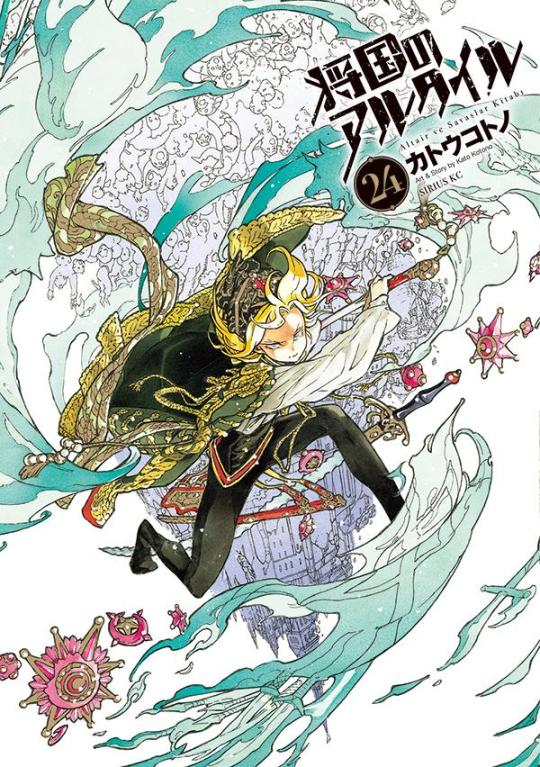
Shoukoku no Altair Vol.24
45 notes
·
View notes
Text








Parents of Raison d'Etre - Pt 1
AKA, The Boomers :P
(Pt 2)
Takino Kentaro and Erika: Koyomiko and Tomoko's parents
Kato Tohru and Kotono: Nozomi's parents
Nakamura Daichi w/ Nakamura Rin (aka "Thérèse Renée Favreau"): Hayato's parents
Rin w/ Jean-Hubert Beaumont: Sachiko's parents
Pan's Mom (her name is lost! But I guess when the time comes, she'll get a permanent - and recorded! - first name)
#raisondetrecomic#original characters#webcomic#portraits#family#parents#a lot of these are okay but some are also pretty bad parents ngl
5 notes
·
View notes
Photo


Spiral cast on Animedia February 2003.
#spiral#spiral anime#suzumura kenichi#asano masumi#horie yui#ishida akira#inoue kazuhiko#nojima kenji#shimada bin#mitsuishi kotono#kusao takeshi#nakahara mai#kato hitomi#seiyuu
13 notes
·
View notes
Photo
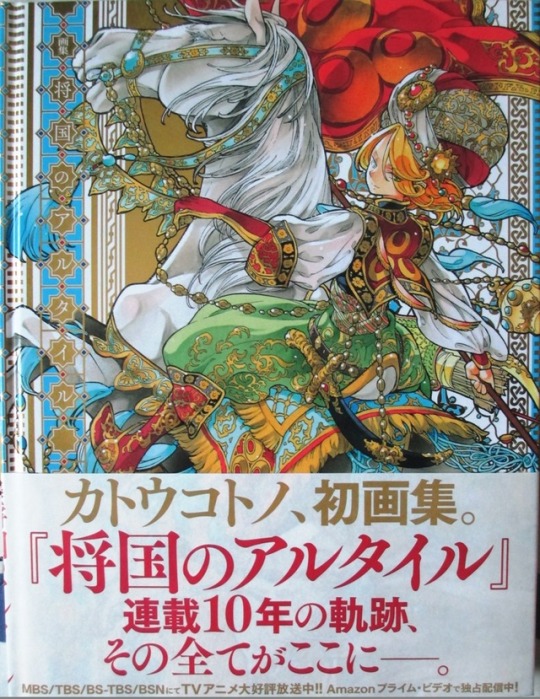

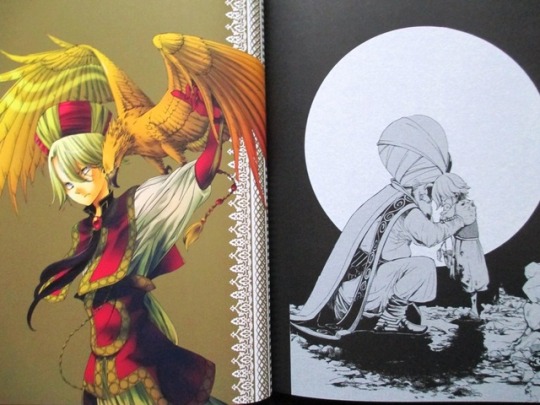
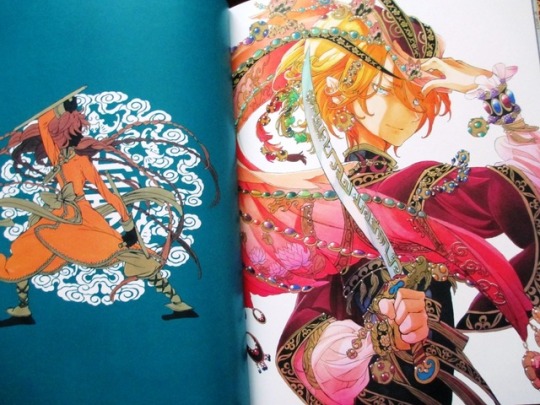
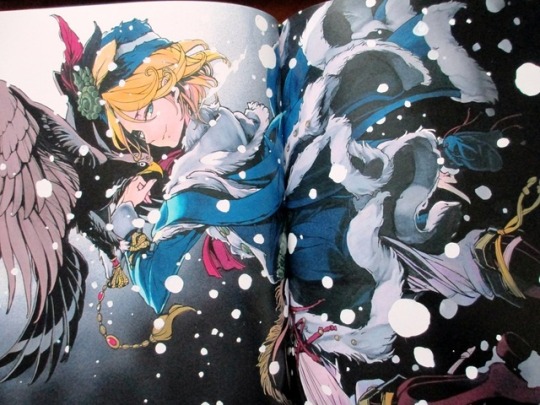
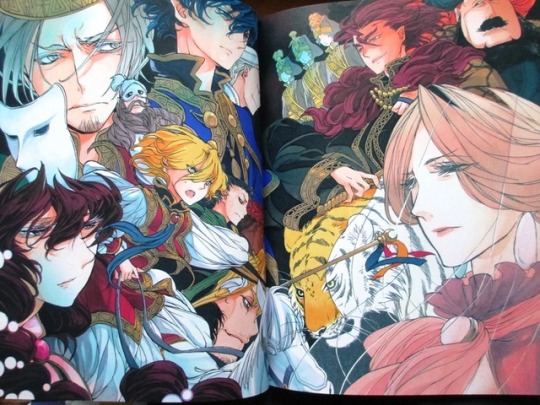
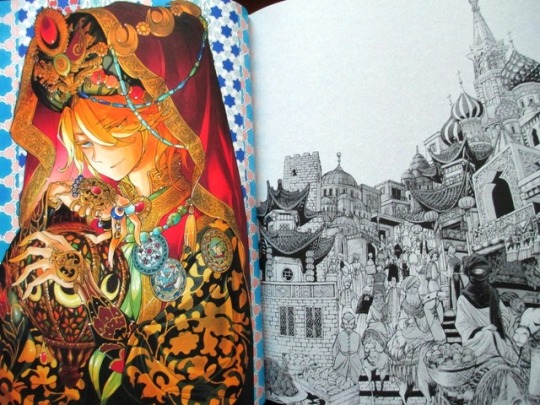
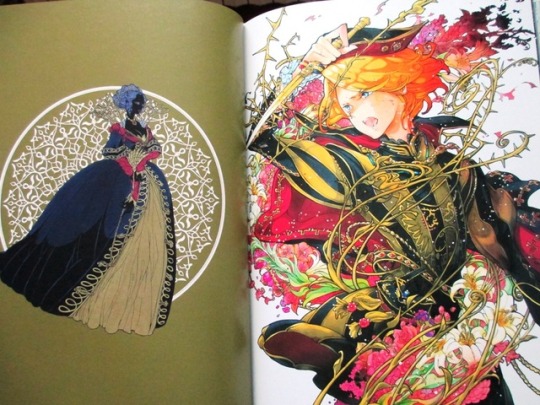
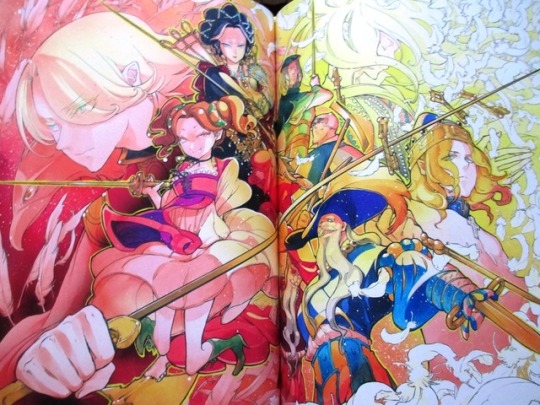
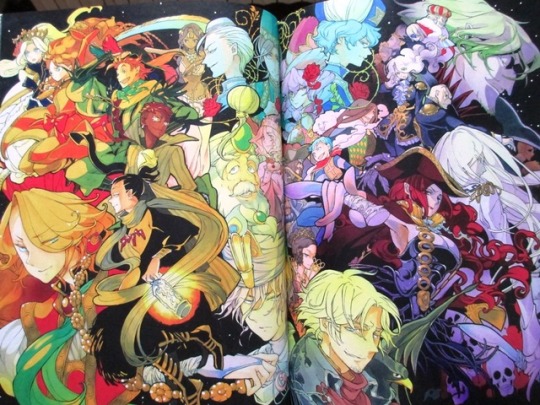
Shoukoku no Altair Artbook - Katou Kotono (part 1)
#artbook#katou kotono#kato kotono#kotono katuo#kotono kato#shoukoku no altair#altair a record of battles#tughril mahmut#mahmut pasha
25 notes
·
View notes